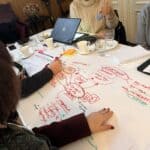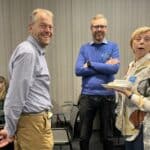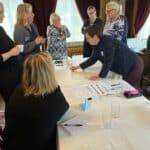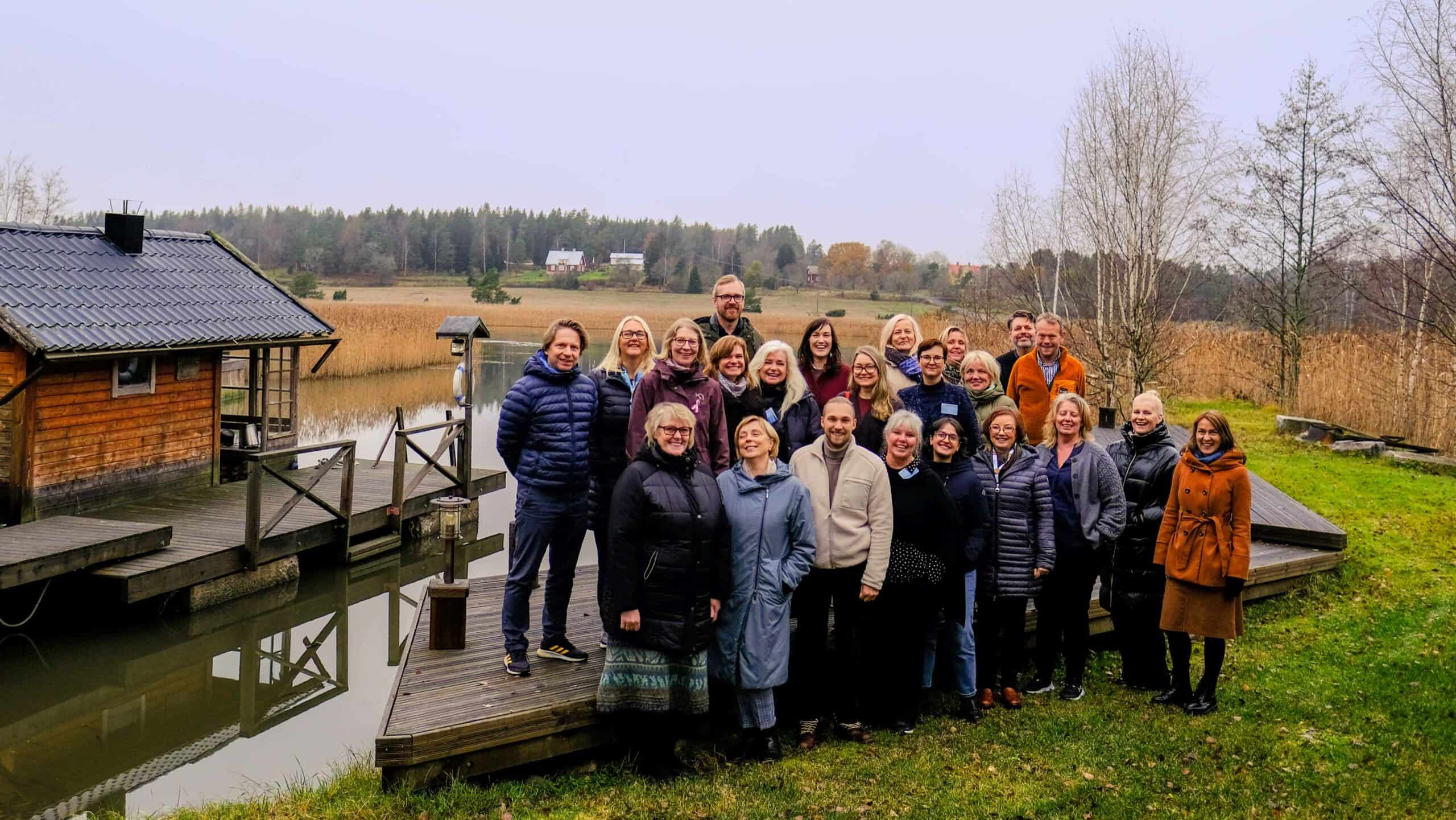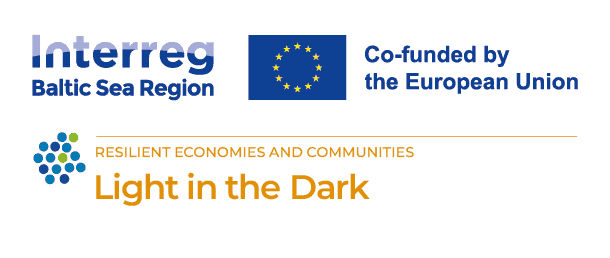
Kick-off in the Turku Archipelago - Light in the Dark project
29 November 2023
For some it was the result of many years of hard project planning and successful project application, for others it was a new start as project managers and experts in the partner organisations. There was an enormous energy and activity from start to finish despite the long seminar days and long travels for many.
Our consortium of 11 project partners represents universities, DMOs and regional development organisations. In addition to this we have a wider stakeholder base of 29 associated partners, mainly small and medium enterprises but also public and regional authorities and NGOs. We could conclude at the end of our kick-off event that the project team contains a deep and diverse expertise within the fields of tourism and regional development.
The Managing Authority/Joint Secretariat of Interreg Baltic Sea Region was present at the seminar with Project Officer Rasma Rozenberga opening the seminar. Camilla Ekman, Dean of the Department of Business Administration, Johanna Liinamaa, Head of Research and Hanna Guseff, Research manager of the lead partner, Novia University of Applied Sciences gave some words of welcome.
Concept Manager Fredrik Albin, our keynote speaker from Visit Skåne, inspired us with his vision of regional tourism development from southern Sweden. He gave examples of how to use elements of the dark season to create new tourism concepts that are based on an area’s unique selling points in combating seasonality. An important discussion during the seminar was to address the purpose of tourism development and how to maximize tourism’s positive effects for local communities. Rural tourism development is also of importance for attracting and retaining inhabitants and providing a livelihood and lively cultural life and activities.
The main workshop of the seminar delved into the respective project work packages and group of activities resulting in a timeline of activities that will be further elaborated at future partner meetings. We have an extensive project that will be based on solid research and analysis. This will result in new piloted and tested transnational tourism concepts and products. The project has much to achieve, but already two weeks in, the project has made good progress. Klaipeda University, the lead of activity 1.1, presented the first draft of the analysis that will be carried out in key markets and be finalised by the end of this year.
There are many cultural activities that unite the project in a local or regional context. Some being common food dishes which have a regional twist, other are common cultural activities. One of which is sauna, which the project partners enjoyed in the evening, complete with swimming in a cold bay of the Baltic Sea. The location of the first day was Villa Apollo which offers customers local organic food based on local and Finnish dishes in a cultural environment of an old log-built building. An example of how storytelling of the local culture through food and experiencing nature can be done even in cold, dark days.
The project group has regular virtual meetings both as a whole consortium and in smaller working groups and committees, with physical meetings in all regions, spaced out through the project timeline.
Novia University of Applied Sciences, the lead partner planned the meeting in order to highlight useful examples of best practice in the Turku area and to provide a creative environment that reflected the values of the project.
The seminar received coverage in the local newspaper and on YLE Radio (in Swedish)





